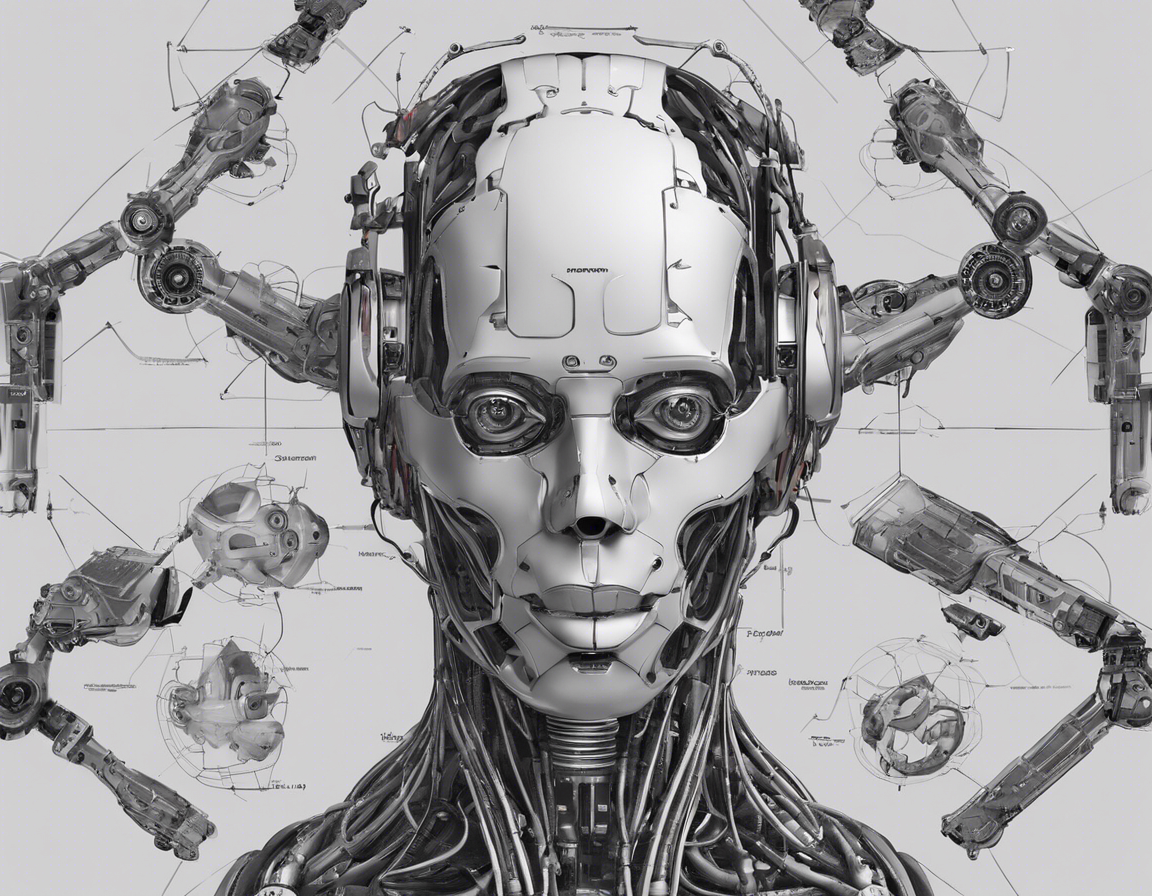Understanding the Primary Objective of AI.
The primary objective of Artificial Intelligence (AI) is to create intelligent machines that can perform tasks and solve problems that typically require human intelligence. In essence, AI seeks to replicate human cognitive functions such as learning, reasoning, problem-solving, perception, and language understanding in machines.
The Evolution of AI:
- AI in its infancy: The concept of AI dates back to the 1950s when researchers began exploring ways to develop machines that could mimic human intelligence.
- Narrow AI: Also known as Weak AI, this type of AI is designed to perform specific tasks, such as speech recognition or image classification.
- General AI: Often referred to as Strong AI or Artificial General Intelligence (AGI), this type of AI aims to develop machines that can perform any intellectual task that a human can do.
- Superintelligent AI: This hypothetical AI system would surpass human intelligence and capabilities in every way.
Objectives of AI:
- Automation: One of the primary objectives of AI is to automate tasks that are currently performed by humans, thereby increasing efficiency and productivity.
- Decision Making: AI can assist in decision-making processes by analyzing data and providing insights to help optimize outcomes.
- Problem Solving: AI systems are designed to solve complex problems by processing vast amounts of data and identifying patterns that humans might miss.
- Personalization: AI enables personalized experiences by analyzing user behavior and preferences to tailor recommendations and interactions.
- Prediction: AI algorithms can predict future outcomes based on historical data, helping businesses anticipate trends and make proactive decisions.
- Natural Language Processing: AI aims to understand and generate human language, enabling seamless interactions between humans and machines.
Applications of AI:
- Healthcare: AI is revolutionizing the healthcare industry by improving diagnostics, drug discovery, and personalized treatment plans.
- Finance: In the financial sector, AI is used for fraud detection, risk assessment, algorithmic trading, and customer service.
- Autonomous Vehicles: AI powers self-driving cars by interpreting sensory inputs and making real-time driving decisions.
- Retail: AI enhances the shopping experience through personalized recommendations, inventory management, and customer service chatbots.
- Cybersecurity: AI helps in identifying and responding to security threats by analyzing patterns in network traffic and user behavior.
Challenges and Ethical Considerations:
- Bias: AI systems can inherit biases from the data they are trained on, leading to discriminatory outcomes.
- Transparency: The inner workings of AI algorithms can be complex, making it challenging to understand how decisions are made.
- Job Displacement: As AI automates tasks, there is concern about the impact on employment and the need for upskilling the workforce.
- Privacy: AI systems often collect and process vast amounts of personal data, raising concerns about data privacy and security.
- Accountability: Determining who is responsible for the actions of AI systems in case of errors or harm is an ongoing challenge.
The Future of AI:
- Advancements in Deep Learning: Deep learning techniques such as neural networks are driving rapid progress in AI capabilities.
- Ethical AI: There is a growing focus on developing AI systems that are transparent, accountable, and free from bias.
- Human-AI Collaboration: The future of AI may involve humans and machines working together to leverage their respective strengths.
- AI Regulation: Policymakers are grappling with the need to regulate AI to ensure ethical use and prevent misuse of the technology.
Frequently Asked Questions (FAQs):
Q1: How does AI differ from machine learning and deep learning?
A1: AI is the broader concept of creating intelligent machines, while machine learning is a subset of AI that focuses on training algorithms to learn from data. Deep learning is a specialized form of machine learning that uses neural networks to simulate human decision-making.
Q2: Can AI replace human jobs entirely?
A2: While AI has the potential to automate many tasks currently performed by humans, it is more likely to augment human capabilities rather than entirely replace jobs. New roles and industries may also emerge as a result of AI adoption.
Q3: How can businesses leverage AI to improve their operations?
A3: Businesses can use AI for tasks such as data analysis, customer service automation, predictive analytics, and personalized marketing. Implementing AI technologies can lead to cost savings, increased efficiency, and better decision-making.
Q4: What ethical considerations should be taken into account when developing AI systems?
A4: Developers should be mindful of biases in training data, ensure transparency in AI decision-making, respect user privacy, and establish accountability for AI outcomes. Ethical AI design principles should guide the development and deployment of AI systems.
Q5: Is AI safe to use, or are there risks associated with AI technology?
A5: While AI offers numerous benefits, there are risks such as bias in decision-making, security vulnerabilities, and potential job displacement. Robust testing, ethical guidelines, and ongoing monitoring are essential to mitigate these risks and ensure the safe use of AI technology.
In conclusion, the primary objective of AI is to replicate human intelligence in machines to automate tasks, enhance decision-making, solve complex problems, and enable personalized experiences. As AI technology continues to advance, addressing challenges such as bias, transparency, and ethical considerations will be crucial to realizing the full potential of AI in a responsible and sustainable manner.
His love for reading is one of the many things that make him such a well-rounded individual. He's worked as both an freelancer and with Business Today before joining our team, but his addiction to self help books isn't something you can put into words - it just shows how much time he spends thinking about what kindles your soul!




